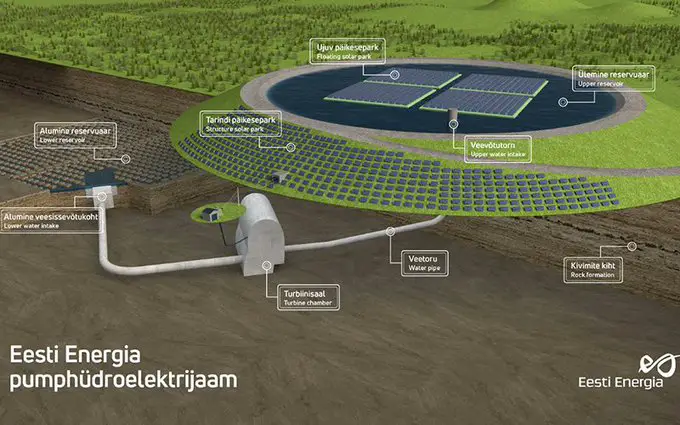Plans to construct a 225MW pumped hydro energy storage plant in Estonia are underway. The plans are being drawn by the state-owned energy firm Eesti Energia. This project is reportedly a part of a larger effort to break the country’s dependence on Russian energy.
The corporation has begun carrying out environmental impact analysis. Furthermore, preliminary design work for the improvements is ongoing and might be finished by 2025 or 2026. This suggests that it might be finished in time for the Baltic region’s planned 2026 connection of Estonia to the continental electrical grid and concomitant disengagement from the Russian energy grid.
The now-closed oil shale mine’s industrial area in the northeast county of Ida-Virumaa will house the pumped hydro energy storage facility.
Read Also: Construction to commence soon on New Bridgewater Bridge in Australia
The pumped hydro energy storage plant technique
The technique might be imported into nations whose land relief makes conventional pumped hydro energy storage challenging. Eesti Energia claims it is not aware of abandoned mines being used as reservoirs for pumped hydro anywhere else. The upper reservoir will be constructed on a tailings dam, an earth-fill embankment used to hold mining waste. Additionally, the bottom reservoir will be the subterranean workings of the closed mine.
With the Harmony Link project, a link between Poland and Lithuania, the Baltic republics hope to detach from Russia’s electrical grid and synchronize with that of continental Europe. As part of this initiative, Lithuania is also working on sizable energy storage projects. Specifically, it is constructing a 200MW, one-hour battery energy storage system (BESS) from Fluence. Poland, meantime, is constructing a 200MW/820MWh BESS that will help with the intended synchronization of the areas. This is according to the state-owned firm in charge of the project.
Looking elsewhere, a few significant, large-scale projects have lately been put into operation in the pumped hydro energy storage sector. Despite being few in number when compared to BESS units, each project has a significant impact on the nearby grid due to its scale.

